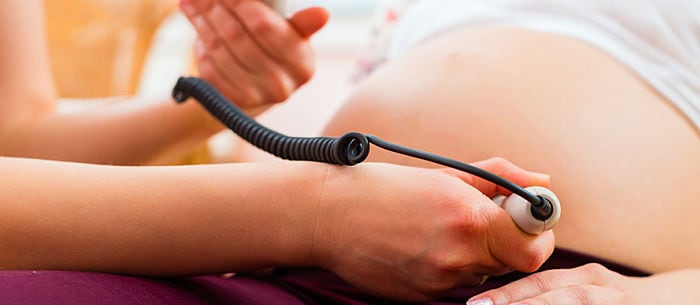You’re not crazy about the sterile, scary setting of a hospital for your baby’s birth, but the lack of medical help at a home birth makes you just as nervous. Birth centers provide an in-between choice for parents who would like to deliver outside of a hospital setting but with more help than they would be able to get at home. Still not sold? Here are the pros and cons of birthing centers.
What Is a Birth Center?
The American Association of Birth Centers defines a birth center as “a home-like facility existing within a health care system with a program of care designed in the wellness model of pregnancy and birth.” Medically trained and licensed staff will help you through labor, but are capable of starting emergency procedures for you or your baby if something should go wrong.
Pros of a Birth Center
- You’ll Have Access to Quality Health Care
Birthing centers will generally have a group of certified midwives and different levels of nurses on staff. They might also have lactation consultants and a connection to a local hospital. “Most birth centers have a group of midwives who share the burden and responsibility of being ‘on call,'” says Aubre Tompkins, a certified nurse midwife. “What this means for the woman in labor is that she will likely have a midwife who is well rested and is well supported with quality time off, so she is not as likely to be exhausted.”
- Natural Birth Options are Available
Birth centers are supportive of natural childbirth with options to aid labor, such as water birth, birthing stools and a relaxing, comfortable home-like environment. Many birth centers allow the woman to guide the labor decisions. If you feel like walking during labor, or taking a shower or resting in a bed, these are all options birth centers typically support.Certified nurse midwife Kate Shantz adds that “the laboring woman gets one-on-one attention from the birth team, usually a midwife and an assistant at the minimum. It is a nice alternative for women that aren’t sure they want to birth at home or don’t live in a setting appropriate for birth.”
- Help From the Hospital is Nearby
A hospital connection for quick transfers with minimal wait is possible, should an emergency arise. “Birth centers usually have a relationship of some kind with that hospital so the transfers can go smoothly and happen in a timely manner,” says Tompkins.“Unfortunately, with a home birth transfer this may not be the case and valuable time can be lost going through explanations and the emergency room.” This helps ensure birthing centers are a safe alternative to a hospital for delivery and care of the newborn baby.
Cons of a Birth Center
- You Might Need to Move
Unlike a home birth, you’ll need to spend time transferring to and from the center. Plan on staying for a short visit — some parents might find moving back home so quickly stressful. “Like a hospital, you have to leave your home when you’re in labor. Sometimes the move interferes with labor, slowing it down,” says Shantz. “The stay is usually six to eight hours, so just about the time you are ready to snuggle in with your newborn and take a well-deserved nap, you need to move again.”
- You Might not Be Eligible if You Have a High-Risk Pregnancy
A birth center will not be an option if any complications or risk factors are present in the pregnancy. “Birth centers are designed for low risk women and pregnancies,” says Tompkins. “This means women with healthy pregnancies who do not have any major health conditions like heart disease, diabetes or epilepsy for example. They should also be carrying one baby who is head down at onset of labor. The pregnancies should be carried to term, meaning 37 to 42 weeks, for admittance to the center in labor.”
With any pregnancy, prenatal care, delivery and postpartum care choices, it’s vital to do your homework. Tompkins says her best advice to parents “is to do your research! Many people in our current culture spend more time researching their next car purchase than their pregnancy providers and birth place.”
Visit birth centers in your area, ask questions and look at reviews of the centers and the midwives associated with it. Shantz reminds parents, “the key to a successful out-of-hospital birth experience is that both partners are on the same page and comfortable with the place they have chosen.”
For more on birthing options, check out the Top 10 Tips for a Natural Birth.
Kit Arbuckle works as a freelance writer providing information on health, parenting and alternative medicine.
* This article is for general informational purposes only. It is not intended nor implied to be providing medical advice and is not a substitute for such advice. The reader should always consult a health care provider concerning any medical condition or treatment plan. Neither Care.com nor the author assumes any responsibility or liability with respect to use of any information contained herein.




